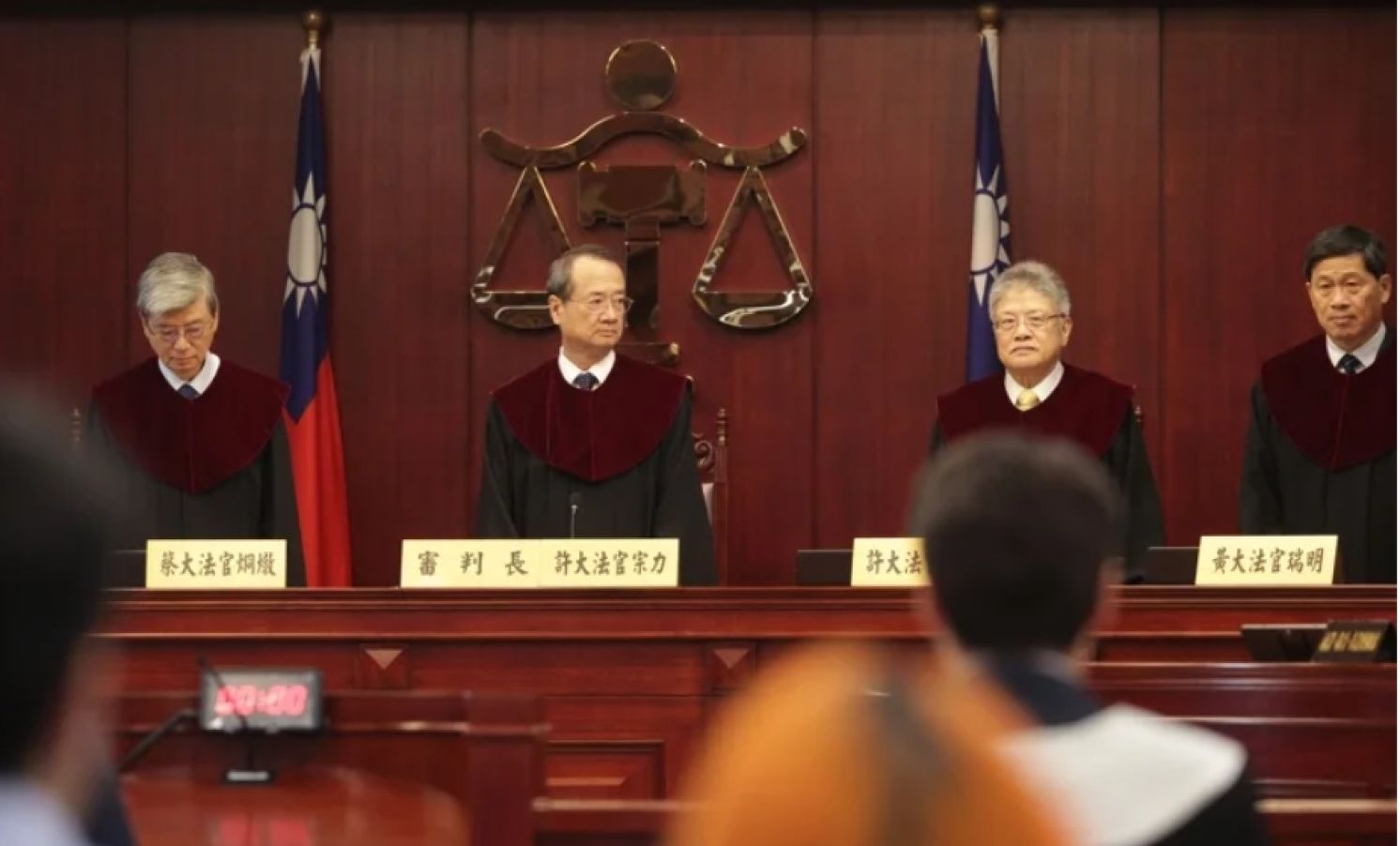
Grand Justices Create Weakest Democratic Parliament in the World
By Liao Yuan-hao, United Daily News Commentary, October 26, 2024
On Retrocession Day observed on October 25, the Constitutional Court issued the ninth ruling of year 2024, declaring parts of the Legislative Yuan's "parliamentary reform" legislation unconstitutional—specifically its core provisions. This decision could render the Legislative Yuan one of the weakest parliaments in democratic nations. While the executive branch celebrates, the court’s credibility faces renewed scrutiny.
The ruling, while declaring multiple laws unconstitutional, also dismissed exaggerated claims of "constitutional destruction" and "no discussion, no democracy." It acknowledged that despite procedural controversies, the laws passed remain valid within the legislature's self-regulatory framework.
Moreover, the justices recognized the Legislative Yuan's rights to question, investigate, and hold hearings. Government officials and relevant parties cannot refuse these inquiries without valid reasons. The Constitutional Court interpreted the contentious "anti-questioning" clause within constitutional limits, suggesting that denying these legislative powers would be excessively extreme.
However, the most significant blow to the Legislative Yuan in this ruling is the removal of all legal enforcement and penal powers. Officials and citizens cannot face fines or criminal penalties for "refusing to attend," "failing to submit information," or "providing false statements." This means the Legislative Yuan can investigate, but officials and the public can ignore requests, submit redacted documents, or offer false testimonies, only facing the mild consequence of "political responsibility."
In an era where politicians uphold duties and respect one another, perhaps the Legislative Yuan wouldn’t need such penalties. Yet this current session of legislators feels otherwise. Over the past eight years governed by the Democratic Progressive Party (DPP), many officials have arrogantly refused to cooperate with legislative demands, failing to attend or provide accurate information, and even lying openly in the legislature. If questioning leads to falsehoods, what’s the point of questioning? If the executive branch refuses to act honorably, the Legislative Yuan must resort to measures against dishonorable conduct. The Constitutional Court’s ruling acknowledges the Legislative Yuan’s oversight role but denies it the ability to impose penalties. Is this naivety regarding political realities, or is it an excessive sympathy for the executive branch at the expense of the Legislative Yuan's oversight duties?
The ruling repeatedly emphasizes an unprecedented legal principle: that the Executive Yuan is only accountable to the Legislative Yuan in terms of "political responsibility," not "legal responsibility." It also states that for the Legislative Yuan to exercise its oversight powers, such authority must be explicitly stated in the constitution. But which constitutional clause supports this? Which precedent has been interpreted this way? The court does not provide an explanation, presenting it as if it were a divine decree.
The power of "compulsory parliamentary investigations," including fines and penalties, is a common authority in democratic nations and can be considered a universal value. Moreover, these investigative powers often arise from implicit rights recognized by political practice and judicial rulings, rather than being explicitly outlined in the constitution. Why do countries, whether parliamentary or presidential systems, develop such coercive measures? Because they recognize that a legislature without investigative and enforcement powers is effectively a toothless tiger!
As the highest decision-making body and an elected supervisory entity, the Legislative Yuan, stripped of its enforcement capability, can only resort to debates. Many of the justices are scholars trained abroad; have they ever heard of the peculiar claim that "officials cannot be held legally accountable to the legislature"? Furthermore, the Interpretation No. 585 of the Judicial Yuan already acknowledges that investigative powers include necessary penalties. Why does this decision seek to undermine established precedents? In a context of weak legal justification, the Constitutional Court has removed the hard-won authority of the Legislative Yuan, leaving the executive branch in a position of unchecked comfort, clearly showing favoritism.
If all disputes can only be resolved politically, then the Legislative Yuan will have no choice but to counter the executive branch through passing bills, cutting budgets, and vetoing appointments. Ironically, this ruling may lead many citizens to feel that the president and the Executive Yuan have the support of a sympathetic Constitutional Court, making the Legislative Yuan less affected and leaving the already fragile judiciary more vulnerable.
(The author is associate professor in the Department of Law, National Chengchi University.)
Photo from: United Daily News
Article from: https://udn.com/news/story/7340/8316977?